Sound of Metal is undoubtedly one of the best films I’ve seen in recent memory. While its story is straightforward, it delves deeply into complex themes such as identity loss and adaptation.
It also touches on secondary ideas that resonate with me on a personal level: the stillness of life and the metaphorical “Kingdom of God.” These concepts are intricately tied together through the film’s exploration of acceptance, surrender, and inner peace.
The main plot

Sound of Metal follows Ruben, a drummer in a heavy metal duo, whose life is upended when he experiences sudden and severe hearing loss. Forced to confront a future without music, he joins a deaf community to learn how to adapt.
There, he finds moments of peace and connection but struggles with accepting his new reality. His decision to undergo cochlear implant surgery brings him back to the hearing world, only to leave him feeling alienated.
Ultimately, Ruben’s journey is about learning to accept his new self, embrace stillness and finding meaning beyond the chaos of his past life.
The main characters

In Sound of Metal, Ruben and Lou embark on a shared journey of healing, but Ruben’s sudden hearing loss and the struggles that ensue ultimately drive them apart, emphasizing their distinct paths of growth and self-discovery.
At the same time, Joe emerges as a mentor and a guiding figure for the Deaf community, including Ruben, teaching him much more than self-acceptance.
Ruben

Ruben’s life before metal, especially with his parents, is largely a mystery in Sound of Metal. The film hints at a strained family dynamic, with his mother’s early death leaving unresolved trauma. His father is barely mentioned, suggesting absence or estrangement.
These unstable early years likely fueled his addiction struggles and his search for belonging through music and his relationship with Lou, though his unspoken past continues to influence his journey.
Ruben is a creative, nonconformist individual who values freedom while also seeking recognition through his music. Metal is not a random choice; it embodies emotional expression, rebellion, chaos and individuality.
Lou

Lou’s backstory in Sound of Metal offers key insights into her character. She comes from a wealthy, artistic family, with her father, Richard, living a refined life in Paris. His composed demeanor and elegant home contrast sharply with the chaotic world Lou shared with Ruben.
The absence of Lou’s mother deeply affected her, as hinted by her father and marked by Lou’s self-harm scars, reflecting emotional struggles and past turbulence.
Despite this, she reconnects with her father through a shared song in French, symbolizing a healing moment and a rediscovery of her roots, even as she moves away from the intensity of her life with Ruben.
Joe
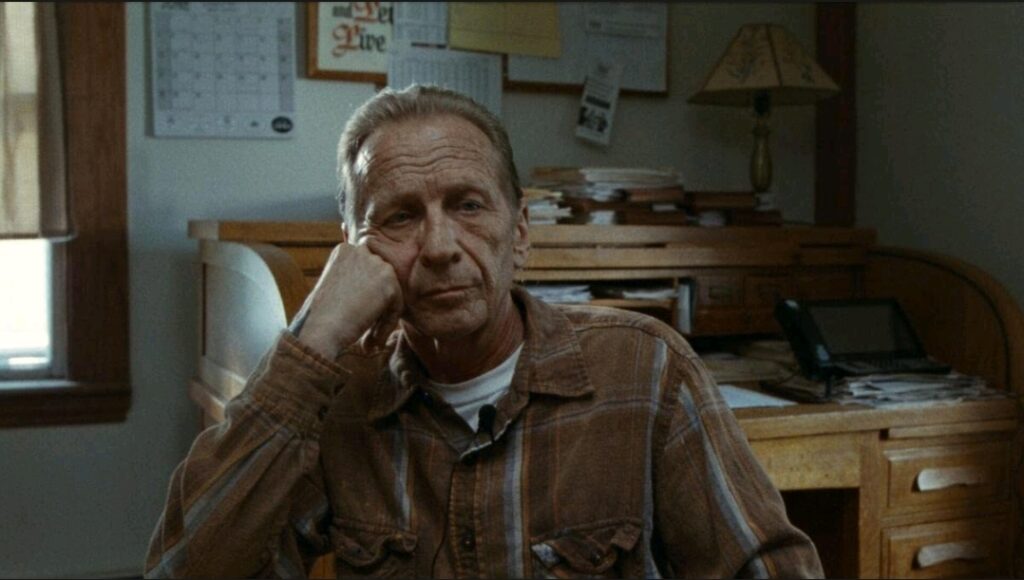
Joe, a central figure in Sound of Metal, serves as a mentor and a reflection of the life Ruben resists. A Vietnam veteran who lost his hearing in combat, Joe leads the Deaf community’s sober house, offering a space for healing and connection.
His philosophy emphasizes stillness, acceptance, and finding peace in silence—values that clash with Ruben’s desperation to return to his old life.
Joe’s tough-love approach, including asking Ruben to leave after getting cochlear implants, underscores his belief in fully embracing Deaf identity. His unwavering principles and leadership highlight the power of finding purpose through acceptance and connection, even amid profound loss.
The Cruel Outside World
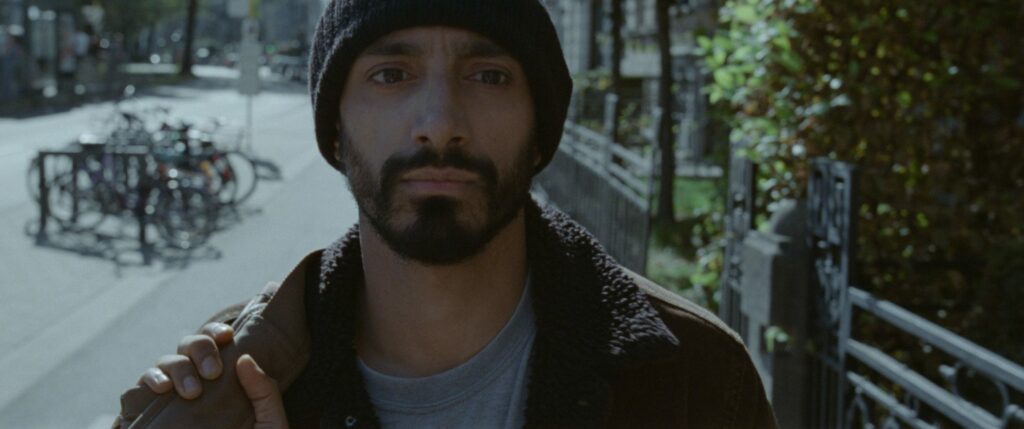
Joe talks about the “cruel outside world” to emphasize the challenges that people in the Deaf community face in a society that often marginalizes them. He wants Ruben to understand that the outside world is not designed for people with hearing loss and can be isolating, dismissive, or even hostile.
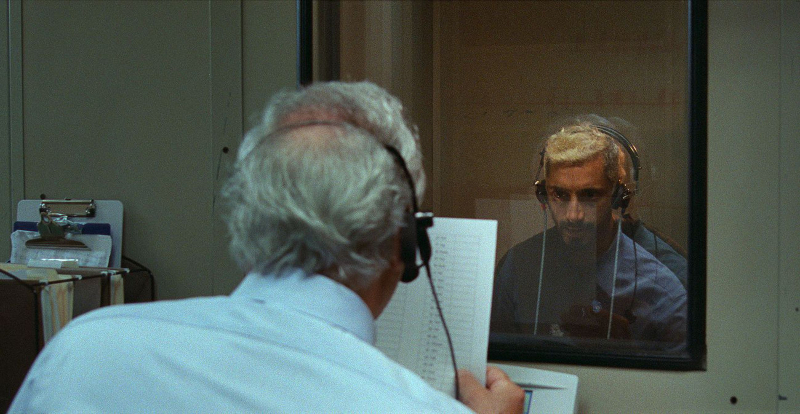
By addressing this harsh reality, Joe underscores the importance of the sanctuary he provides—a place where people can accept themselves, find connection, and build a sense of belonging without needing to conform to societal norms.

Joe’s warning also reflects his philosophy of self-reliance and inner peace. He believes that true fulfillment comes from within, rather than from trying to fit into a world that doesn’t accommodate their needs.
By preparing Ruben for this reality, Joe is encouraging him to find strength and identity in the Deaf community and to embrace a life that may differ from the one he previously envisioned.
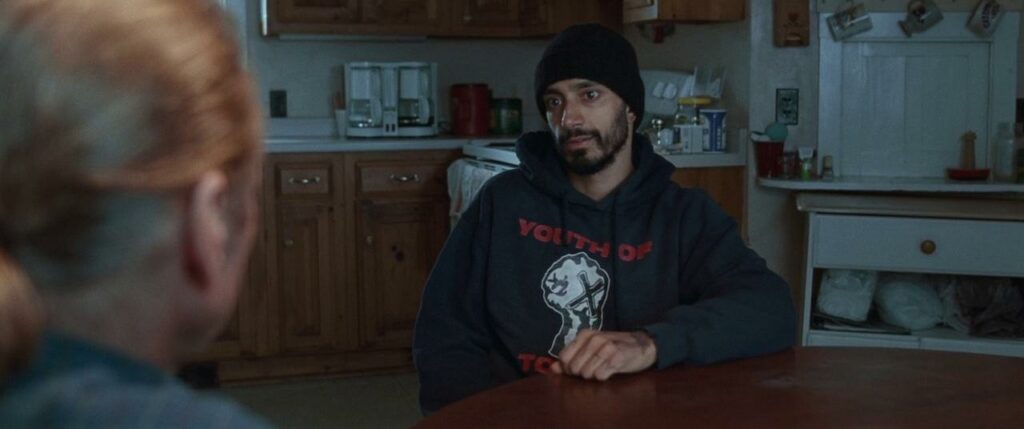
The harsh outside world can also serve as a metaphor for modern society, where many people are perpetually chasing experiences, wealth, or striving to leave a lasting mark on the world—often as a way to seek validation from others and even from themselves.
Ultimately, the outside world prioritizes materialism and superficiality over spiritual fulfillment. In a society where most people are caught in the rat race, we may need to seek a refuge where simplicity and authenticity can thrive once more.
Stillness of Life

Joe, the leader of the deaf community, speaks to Ruben about moments of stillness—those rare, serene instances where life feels whole and present. These moments symbolize acceptance of reality as it is, without resistance or clinging to what is lost. For Ruben, this idea is radical because his life as a drummer, defined by noise, chaos, and movement, has always been an escape from silence—both literal and emotional.
Joe introduces Ruben to a practice of mindful observation, where he sits and writes down his thoughts in silence. This exercise represents Ruben’s journey toward finding peace in what he once feared the most: the absence of sound. Stillness becomes the gateway to healing, not by restoring what was lost (his hearing or his old life) but by discovering completeness in the present moment.
The Kingdom of God
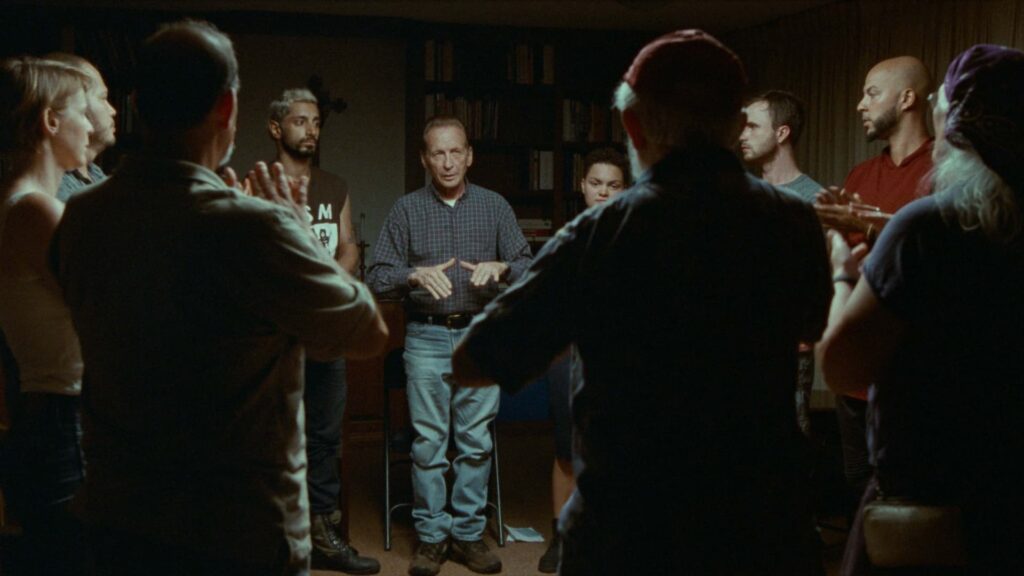
Joe’s reference to the “kingdom of God” aligns with this philosophy of stillness. In the film, the “kingdom of God” is not a literal place or a religious concept but a state of being where one finds peace, self-acceptance, and connection with the world.
Joe’s own life, shaped by loss and renewal, reflects his belief that true fulfillment comes from within, not from external circumstances or achievements.
For Ruben, the “kingdom of God” represents a profound shift in perspective:
- Moving away from trying to “fix” himself through cochlear implants or reclaim his old identity.
- Embracing the idea that his value is not tied to his former life as a musician or his hearing ability.
This transformation parallels spiritual teachings that emphasize letting go of attachments and finding joy in simplicity.
Heaven and Hell on Earth
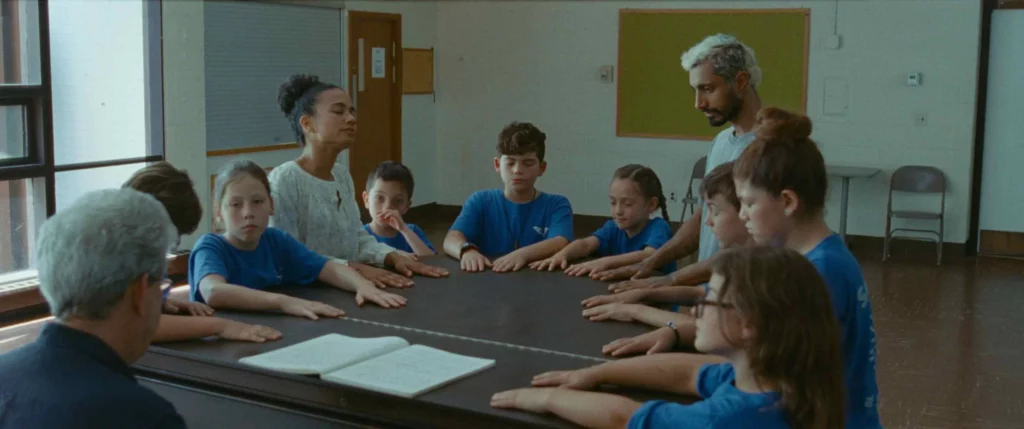
Heaven and hell are not just distant realms of the afterlife; they can manifest in the here and now through the choices we make and the environments we create. Heaven on earth emerges when love, compassion, justice, and unity shape our actions and relationships, fostering peace and joy for ourselves and others.

Conversely, hell on earth is born from selfishness, hatred, oppression, and division, resulting in suffering, despair, and disconnection. These experiences remind us that the quality of our lives is deeply influenced by how we treat one another and the values we uphold. Heaven and hell are not merely places but reflections of the human spirit in harmony or discord.
Building the Kingdom of God: Principles for a Flourishing World

The “Kingdom of God,” often interpreted through theological, philosophical, or spiritual lenses, is understood as a state of existence where divine principles and values shape life and society. The ingredients for its existence can be broadly described as follows:
1. Love and Compassion
Central to many interpretations, love for God and for one’s neighbors fosters harmony and community. Compassion ensures justice, kindness, and empathy are prioritized.
2. Righteousness and Justice
A commitment to moral integrity, fairness, and accountability. The Kingdom thrives on equity, where the needs of the vulnerable are met, and everyone is treated with dignity.
3. Faith and Spiritual Connection
Faith in divine purpose or higher truths connects individuals to a sense of meaning and inspires their actions toward creating a better world.
4. Humility and Service
A willingness to serve others selflessly, recognizing the value in every person. Humility counters pride and selfish ambition, fostering unity and cooperation.
5. Inner Peace and Stillness
A sense of spiritual calm and contentment, allowing individuals to live authentically and resist distractions from materialism or external pressures.
6. Unity and Community
Shared purpose and fellowship bind individuals together. The Kingdom exists when people prioritize relationships over divisions and work collectively for the common good.
7. Forgiveness and Reconciliation
A culture of forgiveness breaks cycles of resentment and vengeance, enabling healing and restored relationships.
8. Joy and Gratitude
An attitude of joy and thankfulness, regardless of circumstances, reflects trust in divine providence and celebrates the blessings of life.
9. Stewardship of Creation
Care for the earth and its resources, recognizing the sacredness of creation and the responsibility to nurture it for future generations.
In summary, the Kingdom of God manifests when individuals and communities align their lives with these principles, cultivating a world of peace, justice, and flourishing for all.
Comparison: Noise vs. Silence, Chaos vs. Peace
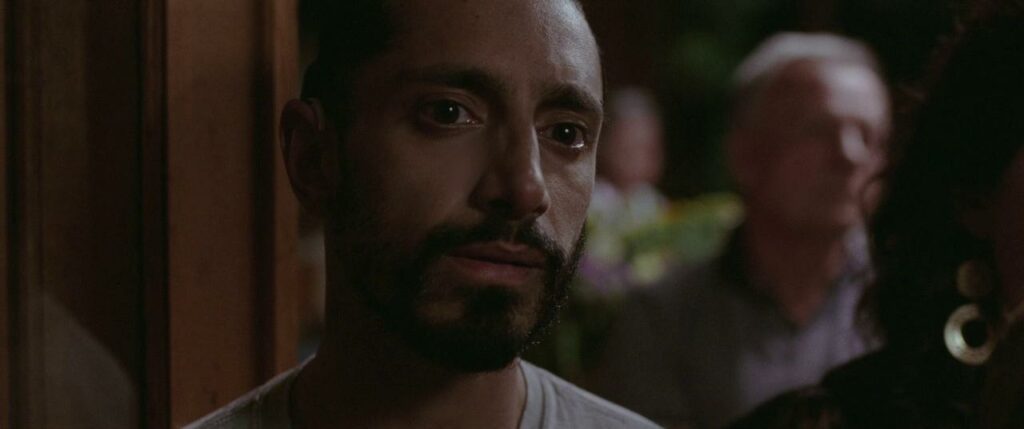
- The world of sound and music (chaos) symbolizes Ruben’s attachment to his old identity and the distractions that keep him from confronting his fears.
- The world of silence and stillness represents an opportunity for rebirth, self-discovery, and true freedom.

By the end of Sound of Metal, Ruben’s journey mirrors a spiritual awakening, one where stillness is not merely the absence of sound but the presence of something greater—inner peace and acceptance.
The Film’s Ending: A Moment of Stillness
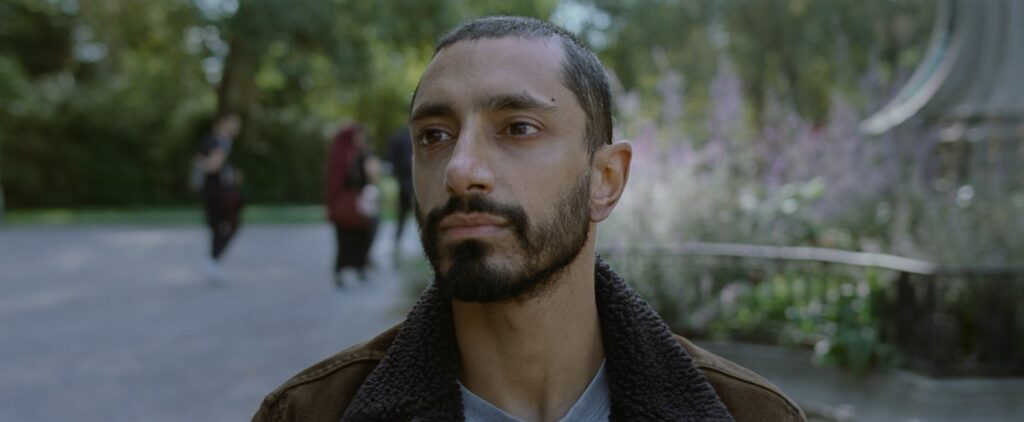
At the end of the film, Ruben removes his cochlear implants and embraces the silence, marking his acceptance of life as it is. This moment signifies his entry into a state of inner peace—his version of the “kingdom of God.” No longer fighting against the silence, Ruben begins to live authentically within it.
In this realization, Ruben opens himself to a life not defined by sound, but by deeper, more meaningful connections. He recognizes that his journey of healing requires letting go of past desires, confronting his limitations, and ultimately finding peace within himself.
Turning off the noise symbolizes concentrating on the simple yet meaningful elements of life, such as nature, quietness, genuine relationships, responsibilities, compassion, kindness, and self-acceptance.


GIPHY App Key not set. Please check settings